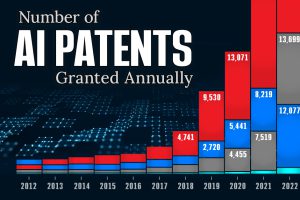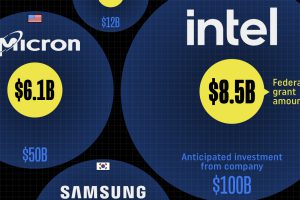
The Supercomputer in Your Pocket
We have mentioned here many times that the exponential rise in technology creates unprecedented opportunities for investors. Smaller and faster computers have led to emerging fields such as big data, the internet of things, cybersecurity, and the mobile payments revolution.
It all stems from Moore’s Law, which is based on observations made as early as 1965 by Gordon E. Moore, the co-founder of Intel. Moore suggested that the number of transistors in a dense integrated circuit would double approximately every two years, creating an exponential rise in computing potential.
However, for many this whole “exponential” thing is hard to wrap our heads around. Most of our daily observations are on a linear level, meaning that relationships hold true at a fixed rate. For example, if one wishes to bake a chocolate cake that is twice the size as a given recipe, the ingredients are to be doubled. If one is buying three cartons of milk from the grocery store, the cost will be three times higher.
Exponential Growth
Here’s an example of an exponential situation that just doesn’t feel intuitive. For the full version, which is worth reading, go to Peak Prosperity as they explain the compounding problem. Otherwise I will paraphrase:
Imagine that you are in Fenway Park, that the stadium is watertight, and you are handcuffed to the very highest bleacher seats. Meanwhile a drop of water is dropped on the pitcher’s mound, and the amount of water dropping will double every minute. How long do you have to escape from the handcuffs before drowning? Minutes, hours, days, years?
The answer turns out to be 49 minutes. Even more interesting is that most people wouldn’t be aware of how dire the situation until about 45 minutes, when the stadium is about 7% full of water and about to double yet again.
This example illustrates exponential growth. Applied to technology, it means that even though we have seen big advances over the last few decades with the emergence of personal computers, smartphones, and even smaller connected devices, the best is still yet to come.
Quantum computing and general artificial intelligence are approaching us faster than we may know.
Original graphic by: Fonebank





